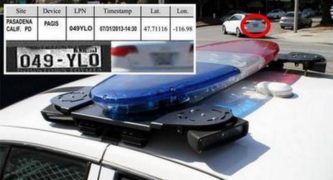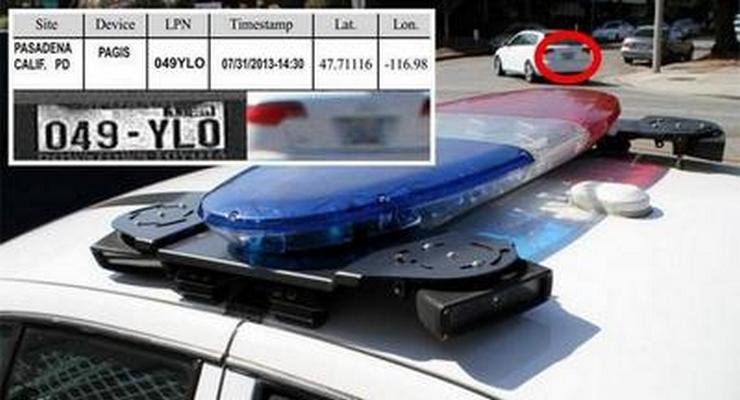Pasadena police officials said they stopped sharing information acquired through automated license plate readers with Homeland Security Investigations after realizing the federal law enforcement agency could be affiliated with Immigration and Customs Enforcement (ICE).
On Monday, the Los Angeles Times reported, the ACLU of Southern California, the Pasadena branch of the NAACP and several other local civil and privacy rights organizations sent a letter to Pasadena city and police officials urging the city to immediately end sharing automatic license plate reader data with the federal government and out-of-state agencies, and to end its contract with Vigilant Solutions, makers of the automatic license plate readers.
“The City of Pasadena and the Pasadena Police Department stand by their commitment to not directly assist ICE in investigating, detaining or arresting individuals solely for violations of federal immigration law,” Lt. Bill Grisafe wrote in an email to the Times.
The newspaper published a story revealing the connection between the three agencies through documents obtained by the ACLU through a Public Records Act request and shared with reporters.
At the time the department requested the city buy three license plate readers, officials promised the police would not share data with ICE.
Grisafe told the newspaper that the Homeland Security Investigations’ Bulk Cash Smuggling Center was not strictly an immigration enforcement unit, but one focused on preventing the funding of criminal enterprises. The department began sharing license plate information with HSI four months ago to help “restrict the flow of funding that supports criminal enterprises,” Grisafe told the Times.
“We will review the matter in detail to ensure that no inadvertent contacts are made with ICE through which they might gain access to City information through some back door or information sharing program,” Grisafe wrote.
“At very best it’s a very negligent mistake,” Mohammad Tajsar, a senior staff attorney at the ACLU of Southern California, told the Times. “The city committed to not doing this, they should have had the wherewithal to make sure this doesn’t happen.”
Automated License Plate Readers, which are used by police agencies across the country, have long been opposed by local civil rights activists because they are able to track people’s movements without their consent.
In September, prior to the City Council approving a contract for the devices with Vigilant Solutions, a private firm with little transparency, Tajsar wrote a letter to the council opposing the purchase, saying the technology posed “a grave danger to all immigrants who live or drive through Pasadena.”
The letter from the civil rights groups also calls on the city to delete all license plate reader data that are not needed for active investigations, and not to store that type of data for any “significant length of time.”
Along with Pasadena, Long Beach, which in 2018 passed a policy to strengthen the city’s sanctuary status, restricts police from turning over information to ICE unless legally obligated. But an August report by the police, obtained by a Long Beach researcher through a records request and shared with the Times, showed the Long Beach Police Department was sending license plate reader data directly to ICE.














 0 comments
0 comments



